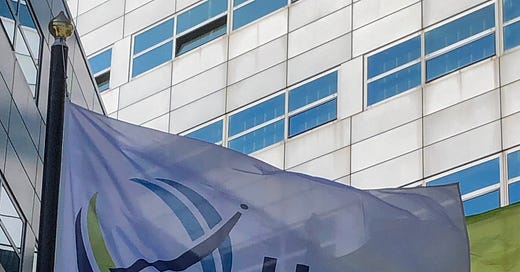What the Hague
An exercise in health politics that conceals and omits adoption harm, avoids accountability, and recasts state control as progress.
In 2024, signatory states to the HCCH 1993 Adoption Convention completed a questionnaire. Aotearoa New Zealand’s Ministry for Children had much to say.
Deconstructing Adoption is for those ready to go deeper. Become a free or paid subscriber.
I read their submission in a frantic airport during a brief open-skies COVID window. Much of our civic life is based on trust. Everyone was masked, and we trusted that this measure would help keep us and others safe. We trust that air traffic controllers and aircraft mechanics are well-trained and that government officials represent us honestly.
I was so engrossed in reading the submission that I nearly missed my flight. All I could think about was the misrepresentation: the truth of our lives manipulated to suit the state’s narrative. It was propaganda presented as policy.
The submission was updated in 2024. On paper, the report appeared routine: a tidy summary of legal frameworks, progress, and policy intentions. However, beneath that administrative surface lies not just spin; it represents a deliberate distortion of the realities that people face.
The latest Hague submission is not only misleading; it serves as a study in institutional gaslighting: a carefully crafted document that deceives through omission, avoids accountability, and portrays state control as progress.
It was so egregious that the Aotearoa New Zealand Adoption Inquiry & Research Rōpū felt it necessary to respond with a formal rebuttal.
Paid subscribers can access Oranga Tamariki's 2021 and 2024 submissions to the Hague, the formal rebuttal, plus references for ideas covered in this column.
The NZ submission cites outdated legislation as evidence of transparency, invoking ‘reform’ but ignoring the fact that reform has stalled. It speaks of ‘support’ when there is none. It disregards the unique legal restrictions imposed on adopted people and multiple breaches of equal treatment guaranteed under New Zealand’s Bill of Rights (NZBORA).
A handy chart for all subscribers is at the end of this column.
The NZ Hague submission conflates access to an “original” birth certificate with adoption records.
Omits the impact of maternal vetoes.
Fails to disclose that adoptees must discover and prove a “special reason” in court to retrieve their own histories.
It erases the lived experience of those who have sought records from Oranga Tamariki, where adoptees are routinely treated as anomalies.
The report references law reform that is not on the legislative agenda and praises the Adult Adoption Information Act for “sustained uptake,” while overlooking the veto system, lack of search support, and psychological toll on adoptees.
It omits previously acknowledged adoption disruptions, downplays DNA barriers, and denies the existence of illicit or irregular practices, despite international concern and testimony before the Royal Commission of Inquiry into Abuse in Care.
It promotes “open” adoption but fails to mention that contact agreements are unenforceable and can be disregarded by adopters at any time.
In its account of intercountry adoption, it presents poverty as justification without addressing systemic inequality or the lasting losses experienced by the adopted. These include being inducted into the 1955 Adoption Act with all the same restrictions as domestic adoptees.
The submission portrays adopted individuals as passive recipients of state care, never as rights-holders or affected adult citizens. It neglects to centre the voices of those who must grapple with closed records, falsified identities, and state-sanctioned family erasure.
It also implies that New Zealand is fulfilling its international obligations while enforcing sealed records, erasing identities, and maintaining discriminatory legal frameworks.
It confirms a government more committed to reputation management than to extending basic rights to those it still excludes: the adopted.
By employing strategic obfuscation, narrative management, and the reframing of known harms as solved or ‘in progress,’ the submission functions as a protective shell around a broken system.
This is not an oversight; it is a strategy.
For many adopted people in Aotearoa, the Hague submission exemplifies how the state sanitises and suppresses the truth.
We do not need another glowing report. We need a candid examination – an assessment of the past, the harm caused then and now, and acknowledgement of those made invisible for the sake of bureaucratic efficiency and societal comfort.
Here’s a handy guide to the Aotearoa New Zealand Submission to the Hague Convention on Intercountry Adoption
If This Resonates
If you are adopted or stand in solidarity with adopted individuals, please do leave your comments.
This platform is dedicated to unveiling the hidden architecture of adoption. It aims to deconstruct the language, laws, and loyalties that continue to shape the lives of those adopted without their consent. Click here to join the work and share (with your local MP, policymakers, educators, and anyone else who still thinks adoption is a social good.
And available now, Tree of Strangers, direct from the author, signed and inscribed.
Coming up:
What is a Post-Adoption Culture anyway? (Thursday 8th May)
That tone-deaf OneNZ commercial.
Thank you to reader Arlette Liwer-Stuip for the photograph of the HCCH flag.
Keep reading with a 7-day free trial
Subscribe to Adoption Deconstructed to keep reading this post and get 7 days of free access to the full post archives.





